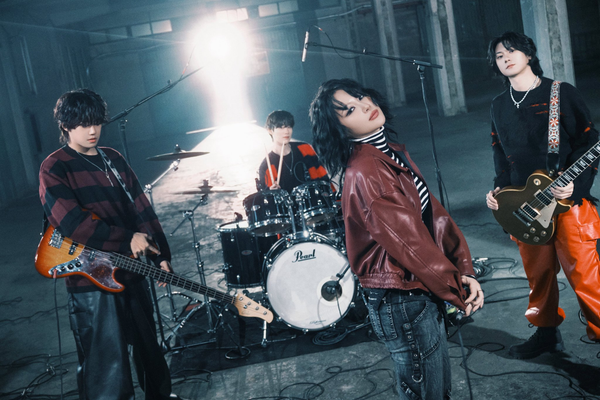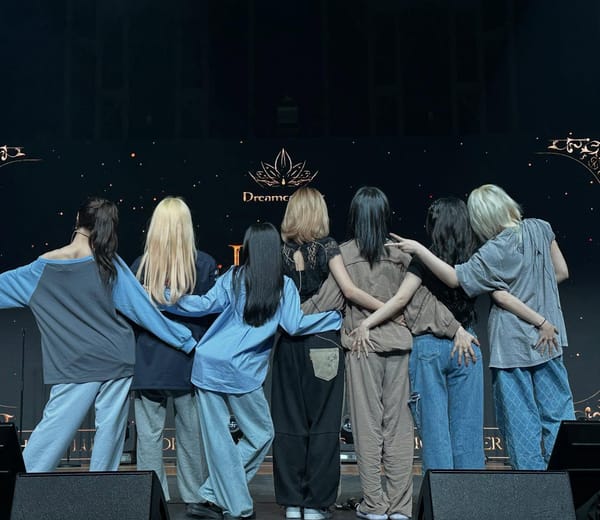IZ*GONE, But Not Forgotten
The talent assembled in the 12-member K-Pop group via MNet's Produce 48 have arguably paved individual paths to success in the industry and beyond.

Previously, I wrote that I wasn’t the biggest fan of survival shows that weren’t named Queendom, but I forgot to mention in doing so that one of those reasons came from a personal preference.
I just can’t get into a group that has way too many members to remember.
My friends who are fellow K-Pop aficionados good-naturedly give me a hard time about this all the time, as I’ve frequently told them that seven members is usually my limit in terms of being able to get into a group. Anything beyond that feels like I’m spreading my appreciation and respect a bit too thin, like not enough butter to go on my toast.
As a K-Pop fan who has to like the on-stage personality, choreography, and music as a whole of a group in order to follow them, sheer numbers just don’t really cut it for me. Combine that with the aforementioned idea of not being too big on the survival show format and there are just certain groups that I’m primed to not notice too often.
So it was that the highly-touted and hyped Produce 48 group IZ*ONE, comprised of twelve members and thus five more beyond my tolerance passed me by in 2018 and beyond with little notice from me. It probably didn’t help that MNet went through a mini-scandal regarding the Produce series’ vote manipulation, and even though such practices seem to be, depending on who you talk to, an open secret when it comes to this stuff, it made me even less likely to pay much attention to the group. The only time that I did, funnily enough, was when the group absolutely crushed favorite group Dreamcatcher’s win chances on M! Countdown, during an IZ*ONE comeback delayed only because of the controversy I just mentioned. But other than that, they inexplicably flew under my radar for the length of their contract.
IZ*ONE became IZ*GONE, and I sort of just shrugged my shoulders. Normally, that would have been the last of it.
But then, a couple years later, a funny thing happened. As the various IZ*ONE members went their separate ways, looked to find agencies or career paths to continue their success, and eventually popped back up into the public eye with group and solo debuts, I began to take notice of the Produce 48 alumni.
My friends would probably tell me this was probably, at least in part, due to the fact that IZ*ONE was now divided into smaller pieces, distributed through seven-member-or-less groups that allowed them to display their individual talents to me. And they wouldn’t be wrong in that respect. As groups like IVE and LE SSERAFIM, part of the 4th generation girl group rookie explosion of 2022, surfaced, it was clear that part of the reason they were doing so well was because of the experience and star power of the IZ*ONE members they’d absorbed into their ranks. Sure, company connections and reach help, but there was undeniably something about the addition of some known quantities in ex-IZ*ONE members that helped the South Korean general public appreciate them pretty much right away.
And on the soloist level, I was slowly getting to know other IZ*ONE members just from individual activities. Kwon Eunbi, who frequently crossed paths with Dreamcatcher, was just one example, while Yena featured another artist, BIBI, who I’d been vibing with lately music-wise. And Lee Chaeyeon, sister to a member of one of my other favorite girl groups, ITZY, was a draw simply due to raw dancing skill plus strong social media presence through creative posts. In many ways, I was getting to experience IZ*ONE in a way that made it easy for me to appreciate their talent as a group when they were together.
Armed with a bit more familiarity with the group in this way, I was able to go back in time to some of their discography. Knowing a few of the members made it a lot simpler to be able to see the talent that was being refined when they were a large unit with a lot of general public support. I discovered, to my surprise and delight, that most of their discography fit the style of music I usually listen to in K-Pop - catchy, dance-driven energetic tunes with memorable bridges and vocalization. Granted, I wasn’t as familiar with the members of the group that pursued other entertainment paths (such as Nako and Hitomi, who’d returned to Japan and AKB48, or Minju or Hyewon, who had gone the acting route), but I had enough knowledge of the domestic K-Pop ex-members to ensure that learning a bit more of the others wasn’t a chore or difficult to remember. Of all the songs, “Secret Story of the Swan” remains my favorite - a distinct part, seemingly, for each member of IZ*ONE, coupled with a cool set of choreography and a tune that makes you nod your head in your chair at minimum.
In the end, if this sounds backwards to you in terms of trying to figure out whether or not I like a K-Pop group, you wouldn’t be wrong. It does seem like it wouldn’t really be the way to do things, especially with the group long since disbanded. But that doesn’t mean there wouldn’t be benefits for now and into the future. While this sort of discovery didn’t really include going deep into the associated variety content, behind-the-scenes, or similar like I would normally for a K-Pop group, it still gives me a good baseline to appreciate future releases by those members still in the K-Pop industry (and maybe to support those that aren’t in some way (congrats, Jo Yuri, on that awesome “Squid Game Season 2” casting). With more to come from IZ*ONE’s alumni, it’s a lot easier to say, in this case, “better late than never”.




